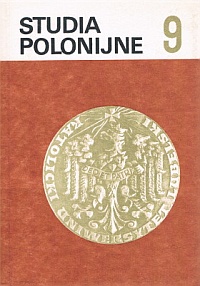Polish Religious Organizations in France and the Problem of Ethnic Identity (1922-1984)
Main Article Content
Abstract
In the inter-war period the Polish organizations in France constituted the best developed and the most coherent system in comparison to other immigrant groups. There were 2350 associations with about 100 thousand members. The religious organizations appeared to be the largest and most numerous. It followed from the fact that Catholicism was considered fundamental for the Polish ethnic identity. In 1938 there were 383 religious organizations associating 33 thousand member They focused on two basic aims: maintaining the religiousness as well as the Polish culture and education. They were effectively active till the middle of the 1950s. Since then, the gradual crisis of all the Polish organizations has begun. The religious organizations appeared to be the most resistant to any changes. Consequently, the had the greatest influence on maintaining both the religiousness as well as various elements of the Polish heritage among the new generations of the Polish immigrants.
In general, the Polish organizations have been controlled by the workers. The lack of inteligentsia prevented from creating a central, superior institution that would help the immigrants understand their national identity and join the elements of the Polish and French cultures.

